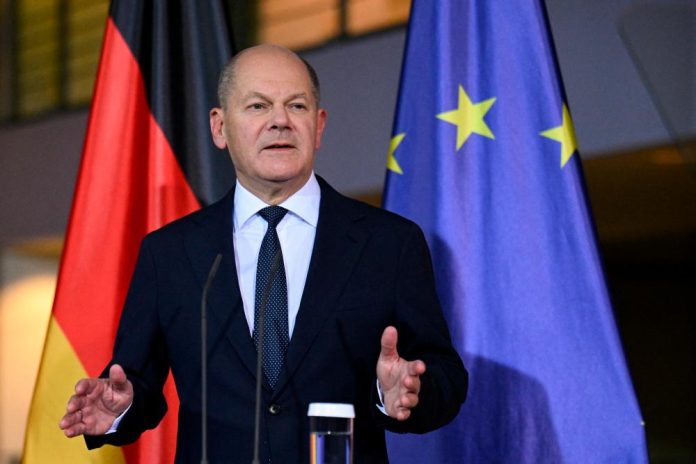Germany’s coalition collapsed on Wednesday as Chancellor Olaf Scholz sacked his finance minister and paved the way for snap elections following Donald Trump’s victory in the US presidential election, Vice-Chancellor Robert Habeck announced.
Scholz is expected to lead a minority government with his Social Democrats and the Greens, the second largest party, after sacking Finance Minister Christian Lindner of the Free Democrats (FDP). The move means that Scholz’s government no longer has a majority in parliament.
Scholz said he would call a vote of confidence in his government on 15 January, a prerequisite for holding elections by the end of March. Meanwhile, the Greens, the second largest party in the original tripartite coalition, will remain in government. Lacking their own parliamentary majority, they will have to organise special support for individual votes from other parties.
Scholz said he would ask Friedrich Merz, leader of the opposition conservatives, to back urgently needed budget measures. He said Germany’s crisis-ridden economy could not wait until after the election for the government to take action.
Adviser Wolfgang Schmidt, the minister in charge of Scholz’s office, or Habeck, the current Economy Minister and Vice-Chancellor, could replace the outgoing Lindner. Scholz, himself a former Finance Minister, could also take up the post alongside the Chancellor.
Crisis of trust
Scholz claimed that his former finance minister “betrayed [his] confidence” and put the interests of his party base ahead of the interests of the country. He added that Germany needs to show that other countries could rely on it, especially after the election of Donald Trump in the United States.
The crisis within the coalition plunged Europe’s largest economy into political chaos hours after Trump’s election, creating deep uncertainty about the future of the continent’s economy and security. When the coalition between the chancellor’s Social Democrats, the environmentalist Greens and the economically liberal FDP was formed in 2021, each party planned to spend heavily on its own core interest groups.
However, the war in Ukraine in 2022 pushed up energy prices and left Germany facing increased defence spending as well as the cost of hosting 1.5 million Ukrainian refugees. Germany is now in its second year of no economic growth.
Scholz and his Green partners want to solve the issue by loosening constitutional rules on public debt to allow for increased spending. However, Lindner planned to pay for the tax cuts by slashing social security and welfare budgets and pushing back environmental targets.
If MPs vote against the government, the country will hold new elections within weeks, rather than on the scheduled date in September.
